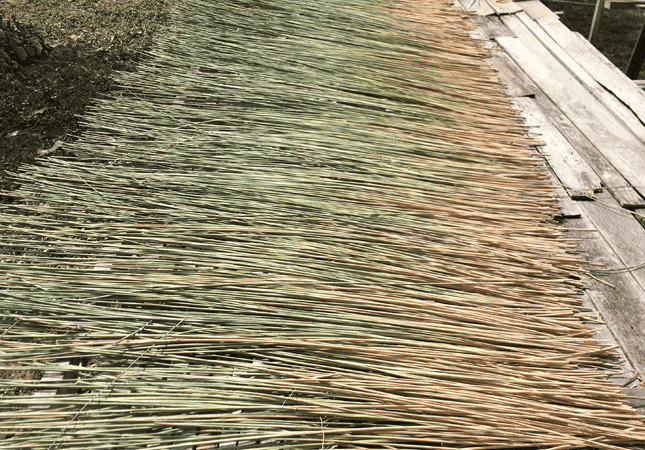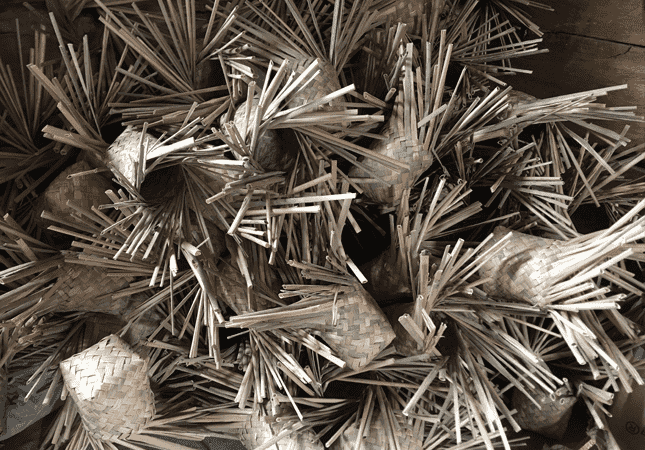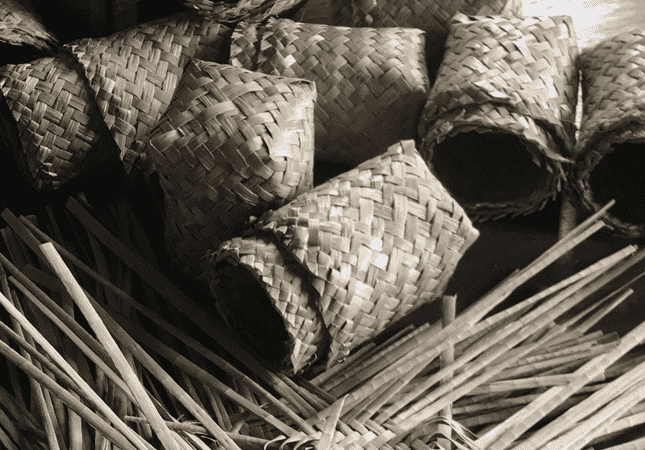Reducing Plastic Waste Footprint on Peatland Restoration.
As one of the core activities on peatland restoration is tree planting, we aim to bring this effort as eco-friendly as possible. Every year, more than 40,000 seedlings are planted as part of the restoration strategy within KMP area. Inevitably, 40,000 plastic bags that are used for seedlings transplantation in the nursery, are also wasted and left, hardly decomposed on the planting area. This, unfortunately, is a paradox that rarely realized by common practitioners.
One day, we saw that women from the nearby villages wove small baskets from local weeds. This weed (Lepironia sp.), is commonly found on inundated peat swamp area. Inspired by this instance, at present, KMP has been at an ongoing phase of replacing the use of plastic polybags in the nursery with what we call bio-degradable bags made from Lepironia sp.


Started in 2017, more than 10,000 bio-degradable bags have been produced annually by local women from three nearby villages and used in KMP’s nursery.


In 2019 itself, about 30% of seedlings in the nursery have been transplanted using these bio- degradable bags, resulting in an almost zero plastic footprint. In total, this bio-degradable bag production has involved more than 40 woman-crafters from 5 villages, providing an additional source of income for these groups. Apart from this financial benefit, this program is also appreciated as a living proof of community involvement in restoration.


Replacement of plastic bags with bio-degradable bags is unfortunately can only be done gradually. The production process is relatively slow since bio-bag is completely handmade. Moreover, this bio-bag can only last for about 3 months, while plants are at least need to stay in the nursery for more than 6 months. Given this situation, KMP and the local crafters have been continuously innovating to accelerate the production as well as improving the durability.
As the material of bio-degradable bags is widely available on swamp environment, replication is possible to be implemented in other areas with similar ecosystem. Besides, this bio-degradable bags can also be made from other plant-based materials such as Pandanus, bamboo, or other weeds that contain solid fibers.
Buy carbon credits from Katingan
Climate change is a global challenge that requires global action. We can help you meet your commitments to deliver a brighter future.

(1).png)

